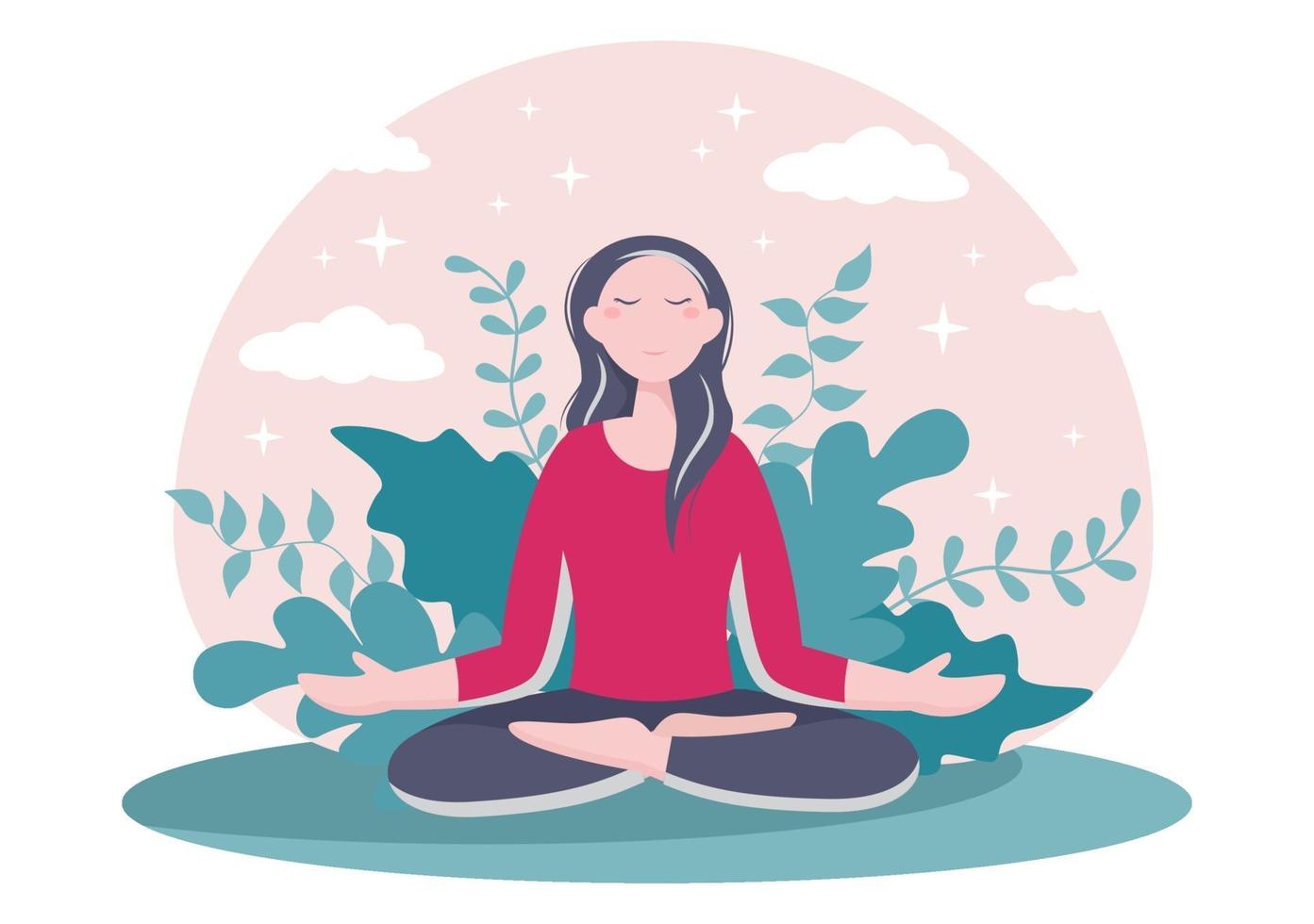Why turn to meditation apps?
The 21st-century technological revolution has permeated every aspect of our daily lives, influencing our thoughts, behaviors, consumption, and social interactions in new and unexpected ways. Smartphones are undoubtedly one of the leading elements of this revolution. Today, a phone has so many functions that there's hardly anything it can't do. This convenience and widespread use has spurred the application of technology to improve users' mental health, which, of course, includes...meditation.

Why is meditation so popular? In recent years, meditation has become increasingly well-known. Many people want to meditate hoping for some miraculous results, while others simply meditate to reconnect with their true selves and appreciate the present moment. However, most people who seek meditation don't know where to begin. The most common questions when someone wants to start meditating are: "Do I need a meditation instructor?", "What if I have a busy life that prevents me from attending a meditation course?", and "What guarantees that I will get the desired results after investing time and effort in those courses?".
There are no guarantees. If you turn to meditation with the intention of finding something, you might find it, or you might not. But if you still want to experience a little meditation and start meditating anytime for almost no cost, you have thousands of options on the App Store and Google Play.
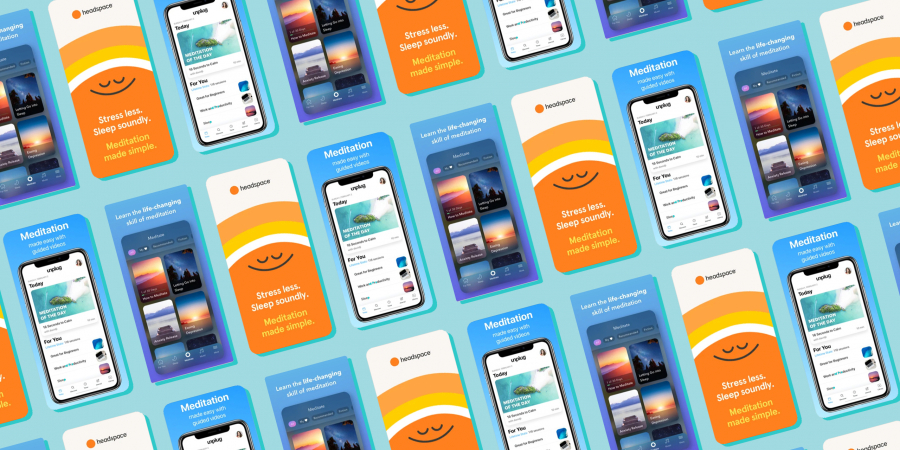
The number of people turning to meditation apps has been increasing year after year, and in the context of the current global pandemic, even more people are doing so, many of whom believe that meditation is the right thing to do.Meditation = happinessAnd it's undeniable that happiness is a worthwhile personal investment, especially when that investment is just a little curiosity and some time.
What can you find in meditation apps?
The popularity of meditation apps also means that this market is becoming increasingly crowded. If you type "meditation apps" into Google, you'll get around 7,260,000 results, along with hundreds of thousands of articles recommending top effective apps. Faced with such overwhelming numbers and countless options, you first need to know what you need from a meditation app. How do you choose a good app and ensure it will help improve your mental health?
1. First of all, a meditation app should offer different levels for you to choose from, ranging from guided meditation for beginners (e.g., breathing techniques, concentration techniques, etc.) to options for experienced meditators (e.g., a stopwatch).
2. After choosing your level, you need to ensure that the meditation course offered by the app is clear and specific: you need to know how to create organized daily meditation sessions, thereby building a long-term habit. If you open a meditation app and find it too confusing, you should probably choose another one. Remember, you sought out a meditation app because you didn't know how to start; if the app confuses you even more, it's best to abandon it.
3. Meditation sessions should vary in duration, be appropriately divided, and not be so long that you feel overwhelmed. Ideally, apps should only offer meditation sessions lasting 3 to 5 minutes. Time will drag on endlessly if you have to sit still for 10 minutes straight to "meditate."
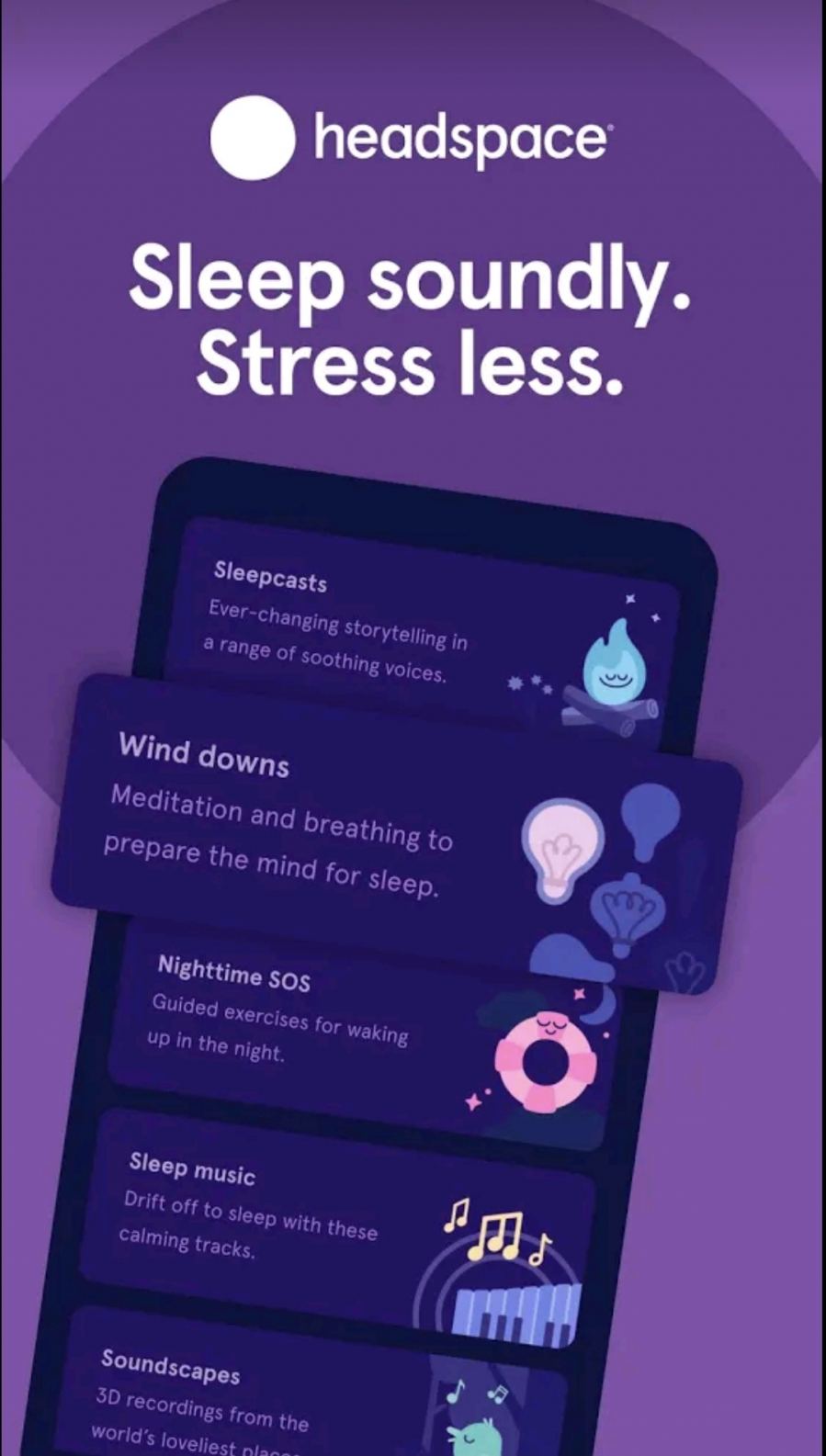
Headspace - a meditation app recommended by many scientists.
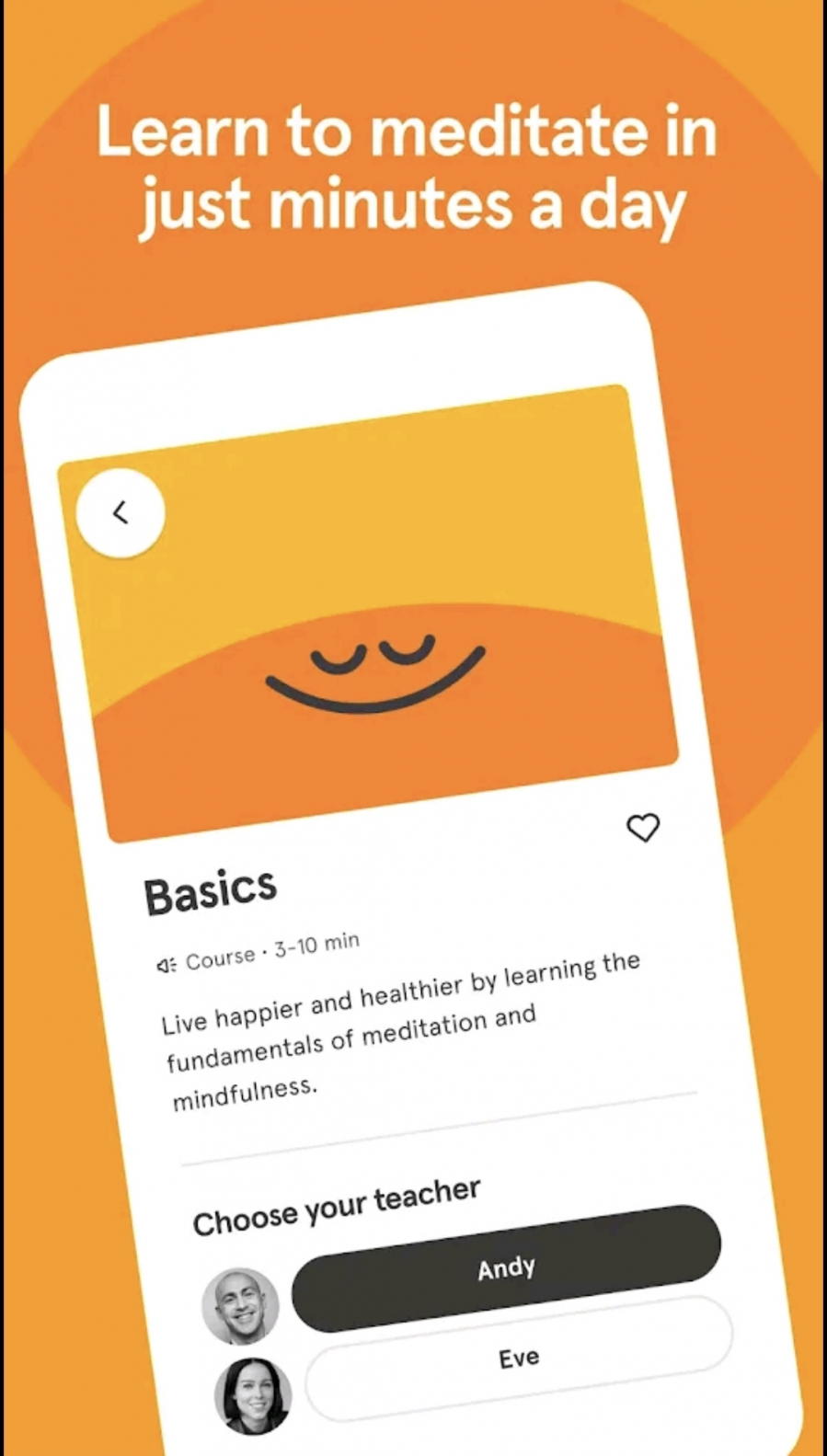
Source: Headspace: Meditation & Sleep
4. Choose apps with pleasing designs. At first glance, this might seem unnecessary, but a comfortable design will make you want to interact with the app more, even looking forward to opening it and meditating. Everyone has different tastes when it comes to good design, but generally, a meditation app shouldn't use overly bright or dark colors, and the content should be arranged and displayed simply, clearly, and easily usable.
5. This isn't crucial, but if your app allows you to download meditations for offline use, that would be a great feature. We don't always have internet access, and saying "I don't have internet, so I can't meditate" sounds... ridiculous.
6. Finally, if the app requires payment to access advanced tutorials, try the free version first. Besides experiencing the features the app offers, you should also consider whether you like the instructor's voice. A gentle voice might be calming for some but distracting for others, or even irritating to some.
Use meditation apps effectively.
After choosing one (or several) meditation apps that suit you, the next important step is to make the process useful and effective. Achieving great results or spiritual growth is quite far-fetched, especially with short-term meditation courses using apps on your phone, but that doesn't mean this time spent "meditating with technology" is entirely wasted. If you know how to utilize the features the app offers and control your meditation process, it will certainly be a very interesting journey; at least you're walking on a new path, and who knows, there might be a door waiting for you at the end.
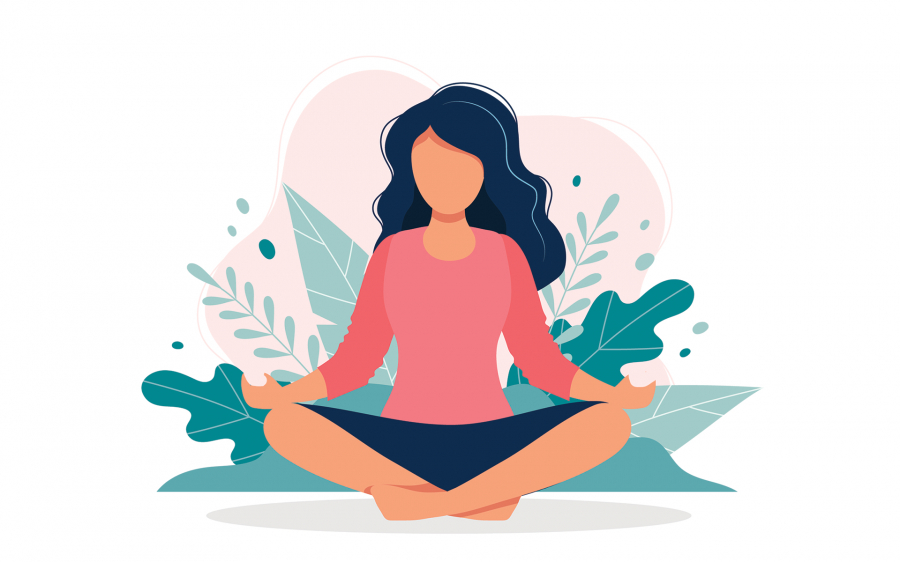
Here are a few tips if you decide to try embarking on this new journey.
1. Keep yourself motivated:One of the challenges of learning meditation is keeping a practice routine. Most apps have features that help you set daily reminders, which can be inspirational quotes, short music clips, or quick "Inhale-Exhale" exercises to remind you it's time to relax your mind. Use these to motivate yourself and don't turn to meditation when you see it as a burden or a mandatory homework assignment.
2. Incorporate meditation into your daily life:Once you've completed your daily meditation sessions and want to expand your meditation abilities beyond simply sitting cross-legged and focusing on breathing, it's time to apply mindfulness to your life. Several apps offer guided meditations tailored to everyday activities like walking, browsing the internet, and eating. In this process, mindfulness lessons are subtly integrated into these activities by helping you broaden your experiences, for example, by noticing the weather in the park or the colors of the food on your plate.

3. Track your progress:In this age of technological boom, every meditation app has features to help you track your progress. They will use the average time you spend using the app to track your total meditation time, your daily meditation time, and how far you've progressed. The apps can also help you assess your mindfulness practice, focus, and balance over time.
In conclusion
No single app is perfect or suitable for everyone. You can start with an app that provides specific verbal instructions, then move on to self-practice apps as you become more familiar with meditation. The important thing is that you find the process works well and has positive effects on yourself.
And even with technological assistance, meditation and mindfulness are still effective.It takes time to practice.Just like playing a musical instrument or a sport, the more you practice, the more proficient you become, and eventually it will become second nature. Even if you only spend 5-10 minutes a day meditating and practicing mindfulness, whether you use meditation apps or not, it's a positive experience to improve your mental health, reduce anxiety and stress, and bring peace to your soul.
16 meditation apps for reference.
Researchers from Lancaster University in the UK conducted a study of the most popular meditation apps on the iTunes store. After examining and narrowing down the number, they ultimately compiled a list of 16 of the most popular and positively reviewed apps, 14 of which are also available on the Google Play Store for Android users. Notably, only one app on the list is...HeadlandExperimental studies have confirmed that it can help users reduce depression and increase positive emotions after 10 days of use. However, this does not mean that other applications are ineffective, as they have not yet undergone in-depth research.
Here is a list of 16 applications in research from Lancaster University:
• Headspace: guided meditation.
• Calm: guided meditation.
• Relaxation Meditation: guided meditation.
• Insight Timer: Self-practice meditation.
• Digipill: guided meditation.
• Relax with Andrew Johnson Free: Guided meditation.
• Mindfulness Daily: Guided Meditation
• 10% Happier: Guided Meditation
• Simple Habit: Guided Meditation
• Omvana: Guided Meditation
• The Mindfulness app: guided meditation
• Pacifica for Stress & Anxiety: Guided Meditation (not available for Android users)
• Meditation Timer: Self-practice meditation
• Breathe: guided meditation
• 3 Minute Mindfulness: Guided meditation (not available for Android users)
• Tide: Focus, Relax, Meditation: Self-practice meditation
Detailed research results can be found atThis.

 VI
VI EN
EN



